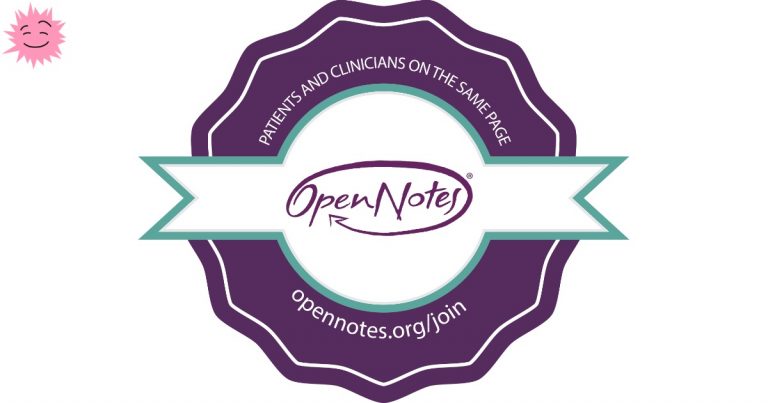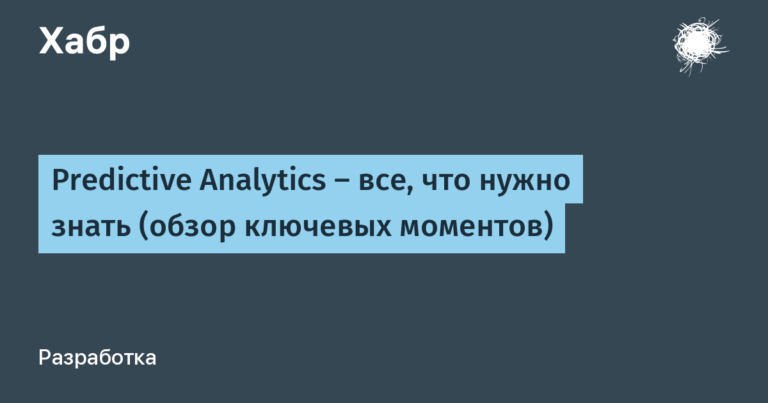list of promising projects of young scientists
The pace of development of the agricultural technology market in Russia exceed 15–20% annually. More and more students and young university graduates are coming into this area with their projects, wanting to make their contribution to the digitalization of the domestic agro-industrial complex.
Today we will tell you about 11 promising agrotech projects that passed through the Student Agrotech Accelerator from the Russian Agricultural Bank and Skolkovo and were presented at the accelerator’s demo day.

“AgroZeus” – destroys weeds with a laser
Problem: Farmers use herbicides to control weeds, but this results in the loss of a significant portion of the crop due to chemical stress in plants, soil compaction, and over time, the emergence of resistance to chemicals in weeds.
Solution: the company is creating an autonomous robotic platform that moves across a field, scans crops, finds weeds and lasers them to destroy them.
Business model: the company provides a service costing 3,000 rubles per hectare. Potential clients are farms with a crop area of 100 hectares or more.
What is done: created an MVP product (a detection system that correctly identifies wheat sprouts in nine cases out of ten), received angel investments of 350,000 rubles, and agreed to conduct five pilots in Russia and the CIS.
Now the company is in the process of receiving another 4 million rubles from investors. Additionally, she will need another 16 million rubles to pay salaries to a team of six people, purchase equipment and components.
Dark Farm – building a network of city farms for the production of greens
Problem: Most greens are produced industrially using hydroponic technology, according to Dark Farm. She travels to the store to visit the buyer from distant country greenhouses or flies by plane from other countries. As a result, 30% of the goods spoil along the way and do not reach the stores, they say at Dark Farm, and the rest ends up on the table not in the freshest form either.
Solution: the startup proposes to create a network of vertical farms within the city: the greens grown on them can be delivered to the consumer as quickly as possible. Both catering establishments and ordinary consumers will be able to use the service (for example, by subscribing). They plan to grow greens using aeroponics, which, the founders hope, will allow them to harvest a larger harvest and make the product tastier and healthier.
Now the company intends to build the first city farm with an area of 100 square meters. m and try to occupy 10% of the Rostov-on-Don market, which should bring it about 30 million rubles a year. The project already has an MVP, two customers among restaurants, and a grant of 1 million rubles.
The company estimates the entire Russian market at 360 billion rubles.
KAPhages – preventive bacteriophages for cattle
Problem: Due to livestock diseases, Russian agriculture loses 8 billion rubles annually (30% of this is due to mastitis). By 2050, the mortality rate from antibiotic-resistant bacteria is expected to be greater than from cancer (more than 10 million deaths per year).
Solution: An alternative to antibiotics could be a cocktail of bacteriophages. The project is at the MVP development stage. There are currently two people on the team.
Business model: direct sales to agricultural holdings, contract production of cocktails. The company promises to maintain about 6% of net profit from milk (11.4 million rubles per 1,000 forage cows per year).
Plans: register the first product for bovine mastitis in 2026. They are looking for 10 million rubles for product development.
Plate to plate is an application for reselling products that cafes and restaurants were unable to sell in a day
Problem: 15–20% of products sold in public catering are not sold before the end of their shelf life and are thrown away. For example, in Russia, 17 million tons of food worth more than 1.6 trillion rubles end up in landfills every year.
Solution: an application through which you can sell unsold food during the day with discounts from 30 to 70% and a map of places.
Business model: commission of 5% of the cost of goods sold + monthly commission for the application (2500 rubles). First of all, the company wants to enter the markets of Sochi and Moscow.
Investment needs amount to 1.5 million rubles, the return period for investments is a year after breaking even (according to plans, it will begin to pay off in the second year of operation).
AgroGames – a board game about agro-industrial complex for schoolchildren
Problem: The industry suffers from a shortage of qualified personnel. According to the Ministry of Agriculture, it lacks 200,000 employees, and the number of vacancies for 2022 increased by 51%. According to AgroGames, the industry is developing dynamically, and its unpopularity is primarily due to the fact that young people simply do not know about the opportunities in the agricultural sector, thinking that it is “something connected with collective farms and the need to collect potatoes.”
Solution: a board career game through which you can talk about professions in the agro-industrial complex, motivate you to work in the industry and show how to get your dream position. The game will be built around a map of professions, and the player’s task is to get from the initial position, which can be taken immediately after university, to the top one.
Business model: b2c and b2b sales. The Russian board games market is estimated at 22 billion rubles. According to the company, it will be able to earn about 50 million rubles a year from it.
Plans for 2024: release a prototype, start production and first sales. The co-founders of the project are twin brothers.
“TochnoPole” – agricultural enterprise management system
A problem withNow, according to TochnoPole, agronomists have to deal with overly complex and overloaded software for field management. In addition, buyers of such software have to significantly overpay for unnecessary functions.
Solution: an application that, according to the company, has only the necessary functionality: calculating NDVI, forecasting yields and monitoring the availability of spare parts for fleet equipment. This will reduce the cost of application development and simplify the interface for users as much as possible.
Business model: sale of licenses for 1–3 years costing from 5 to 50 rubles per hectare. The average bill for an enterprise will be 50,000 to 100,000 rubles.
Plans: in 2024 they want to test the software at real enterprises, and in 2025 they want to receive a profit of 3 million rubles. They are looking for 3 million rubles to develop an MVP application.
Now there are 6 people in the team, they have attracted a grant from the Social Security Fund.
Fast Network – community manager for business
Problem: The agritech industry hosts about 150 events a year, but it is difficult for their organizers to find participants due to the niche nature of the business.
Solution: a telegram bot that will help you find someone to talk to, quickly register for an event and collect information about new acquaintances (phone book format). The organizer will be able to find participants more easily, and participants will be able to expand their networking. After each meeting, feedback is collected to improve selection. Business model: b2b and b2c.
The company is looking for new opportunities for pilots.
V Fiber – fabric made from recycled vegetable agricultural and food waste
Problem: In Russia, 87.5 million plant-based agricultural waste is generated annually, but only 5% of it is processed. At the same time, there is a material called lyocell, but it is produced abroad.
Solution: creating lyocell from agricultural waste is cheaper and more environmentally friendly than buying foreign material.
Market: the Russian lyocell market is 30 billion rubles. Clients are seen as manufacturers of clothing, threads and fabrics. The company is already communicating with clothing brands, and they have expressed interest.
The company conducted research on the extraction of cellulose from reed waste and agreed to conduct R&D with two institutes. The company is looking for investments in the amount of 4 million rubles for R&D, development of production technology, pilot implementations, attracting customers and payroll.
“LactaPro” – increasing the number of lactations in cows
Problem: In Russia, cow productivity is four times lower than in the world, and the average milk yield is 11 liters.
Solution: a pharmaceutical that increases the cyclicity of lactation.
Market: 63.7 billion rubles – the veterinary pharmaceuticals market in Russia. Clients are considered to be the b2b and b2g segments, public and private agricultural companies, private farms, and cattle owners. By 2028, revenue is planned in the amount of 218 million rubles, and profit in the amount of 64 million rubles.
By the end of the year, the company plans to have a prototype and conduct clinical testing.
They are raising 7 million rubles to carry out full-fledged R&D and a pilot, certification of the drug and payroll.
“Sampler”
Problem: Currently, water sampling is very labor-intensive (several people sail on a boat and pull out water samples) and inaccurate due to human error, and the samples themselves can only be taken at 3–4 in the morning.
Solution: a water sampling boat, which fits in a backpack, dives to a depth of up to 10 m, and is equipped with oxygen, pH, and temperature sensors. You can control the device through the application. An alternative could be a monitoring buoy, which is constantly in the water and transmits data in real time.
Business model: sale of selectors themselves and individual containers for water intake, subscription with the opportunity to receive analytics of indicators using neural networks, wholesale government purchases of instruments from research institutes and environmental laboratories.
Agricultural platform with payload module
Problem: The agro-industrial complex suffers from staff shortages, especially during the period of fruit harvesting and crop harvesting. In particular, the startup’s partner, the Steppe agricultural holding, faced this problem. For the holding, this problem becomes especially acute during periods of fruit harvesting and crop harvesting. And, for example, in the North Caucasus Federal District, the demand for agricultural workers increased by 20% in 2022 alone.
Solution: a universal agricultural platform (rover), which will allow mechanization and simplification of work in agriculture. It is essentially a steel equal concentration that can be equipped with trailed and mounted payload modules. The company plans to enter the market with a completely ready-made solution by May of this year.
Business model: distribution, sales types: b2c, b2b, b2g. Manufacturing a basic model of a rover costs 150,000 rubles, and they intend to sell it for 300,000 rubles. The company calls XAG its only direct competitor, whose solution costs 1 million rubles.
About the RSHB student accelerator
RSHB launched a student accelerator for the second time. Bachelor's and master's students, graduate students and researchers developing an agrotech startup at the idea or prototype stage could apply for participation in the program. In 2023, more than 250 applications were submitted for participation in the project from students of higher educational institutions from all over the country, 75% of applications were undergraduate and graduate students. During the acceleration, startups were able to find their first clients and enter into new partnerships: two teams reached the stage of negotiations with bank representatives about launching pilot projects, and four teams about testing their solutions on the sites of other large companies. Even more news and analytics about agricultural technology, IT and business, as well as current vacancies and internships, you can find on the RSHB in Digital platform and in our Telegram channel. You can find even more news and analytics about agricultural technology, IT and business, as well as current vacancies and internships on the platform “RSHB in digital” and in our Telegram channel. You can find even more news and analytics about agricultural technology, IT and business, as well as current vacancies and internships on the platform “RSHB in digital” and in our Telegram channel. You can find even more news and analytics about agricultural technology, IT and business, as well as current vacancies and internships on the RSHB in Digital platform and in our Telegram channel. Even more news and analytics about agricultural technology, IT and business, as well as current You can find vacancies and internships on the RSHB in Digital platform and in our Telegram channel. Even more news and analytics about agricultural technology, IT and business, as well as current vacancies and internships can be found on the RSHB in Digital platform and in our Telegram channel.
You can find even more news and analytics about agricultural technology, IT and business, as well as current vacancies and internships on the platform “RSHB in digital” and in our Telegram channel.




